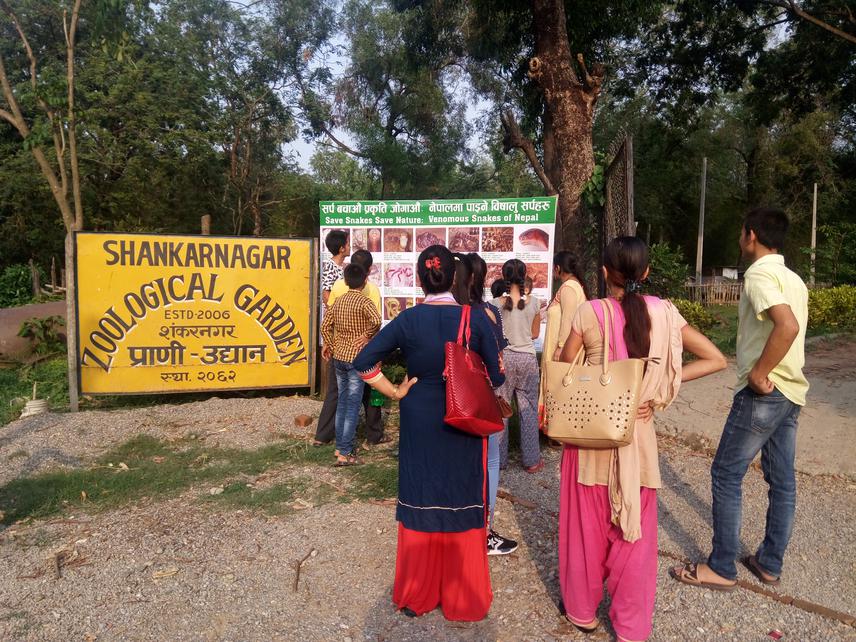This project is a very unique and interesting snake conservation educational project. A snake conservation education project of this scope is the first of its kind in Nepal which involves various integrated and structured educational and community outreach programs. Snakebite is a life-threatening public health problem in Nepal and many people kill snakes on sight because of the fear of being bitten. The aim of this project is to continue our previous campaign "Save Snakes Save Nature" and to carry out follow-up programs to address the need for more information to increase awareness of snakes, snakebite mitigation and snake conservation through research, education and community outreach to create a harmonious relationship between humans and snakes. As part of this project, educational video documentary about snake conservation will be produced and broadcasted from different media which will benefit millions of people.

Locals observing our hoarding board.
Nepal has a high no. of snake species, some of which are listed in IUCN Red List Status and in CITES; Eryx conicus (Common sand boa), Python bivittatus (Burmese rock python), Ophiophagus hannah (King Cobra) etc. We were able to record 24 species of snakes in Rupandehi district with the distinct possibility to record more from previously RSG funded projects. In Nepal, most of the people kill snakes on the spot due to fear of being bitten and snakebite victims use inappropriate and harmful first aid methods which increase human-snake conflicts in communities. There are a lot of misconceptions and traditional beliefs about snakes and snakebites which provokes people to kill the snakes when they are encountered. We suspect some unscientific and wrong messages in social media may also stimulate people to kill snakes.
Therefore, awareness is an essential component in making conservation programs successful. We will continue some of our previous "Save Snakes Save Nature" educational awareness programs and will also add some new impactful programs. We will survey all the seven Provinces of Nepal using random sampling method and administer questionnaires to renowned personalities from the country. We are convinced that the educational videos which convey right and scientific information will be one of the most effective conservation strategies for long term. These videos with various other integrated educational and awareness programs help in the capacity building of the local people, human-snake conflict mitigation and foster support for snake conservation. This will be a Mega-awareness program for snake conservation. We will shoot and broadcast short messages as ideal educational tools in a theme "I Speak for Snake Conservation, and You?". Concluding, to minimize all the unscientific and unnecessary activities and also to spread awareness and to build capacity of the local people in a larger scale, we designed this project "Education in Motion: Strategies to Engage Communities in Snake Conservation When Science isn't Enough".
